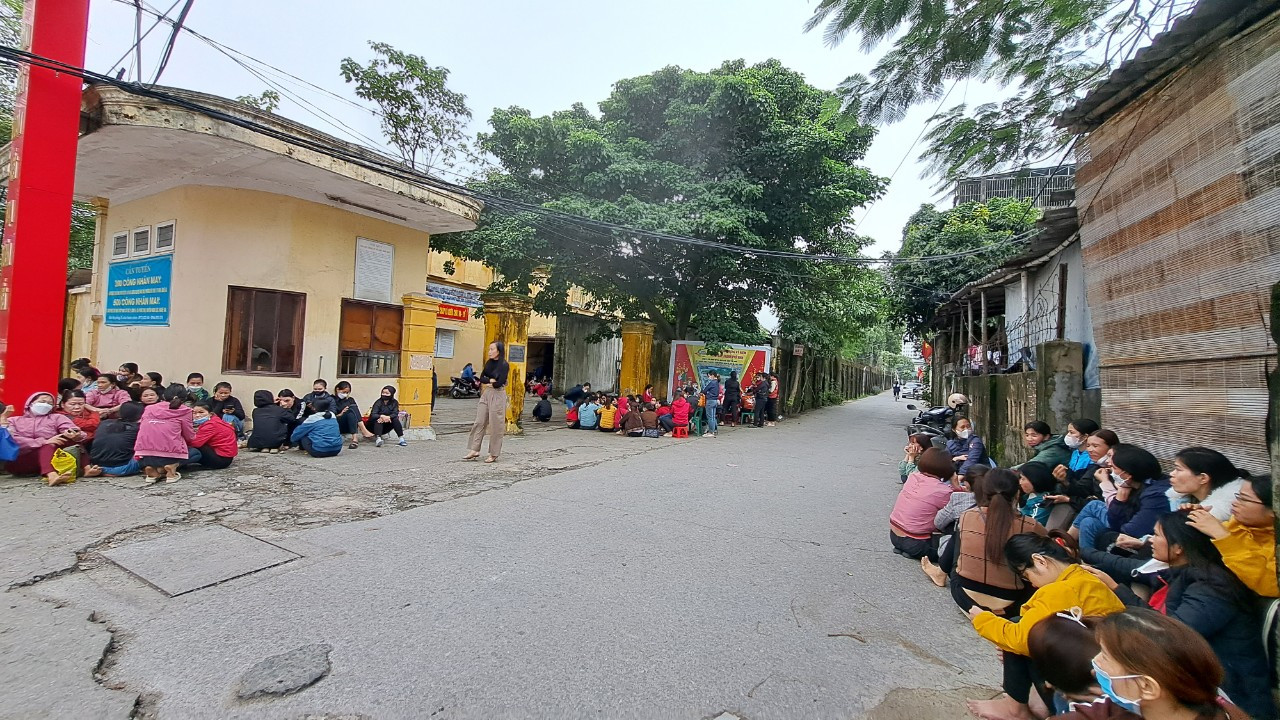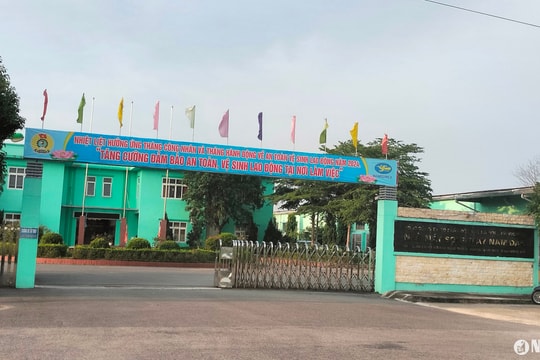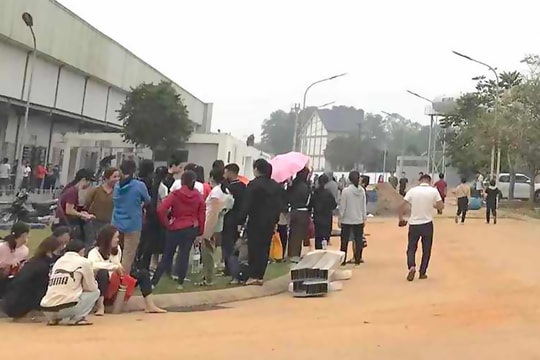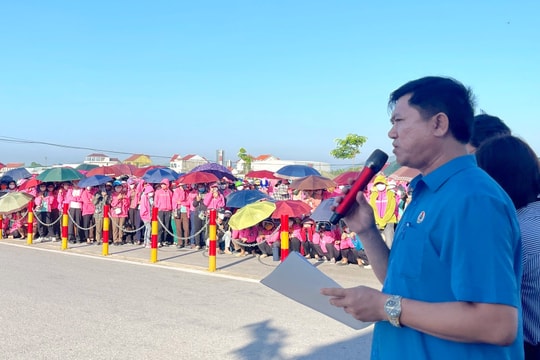Part 1: "Gaps" in worker security
With many opportunities and challenges in the new situation, the working class, laborers and the Vietnam Trade Union need more attention, companionship, consolidation and improvement than ever before. As the main labor and production force of the whole society, the issue of worker security not only affects the economy but also directly impacts many other aspects.
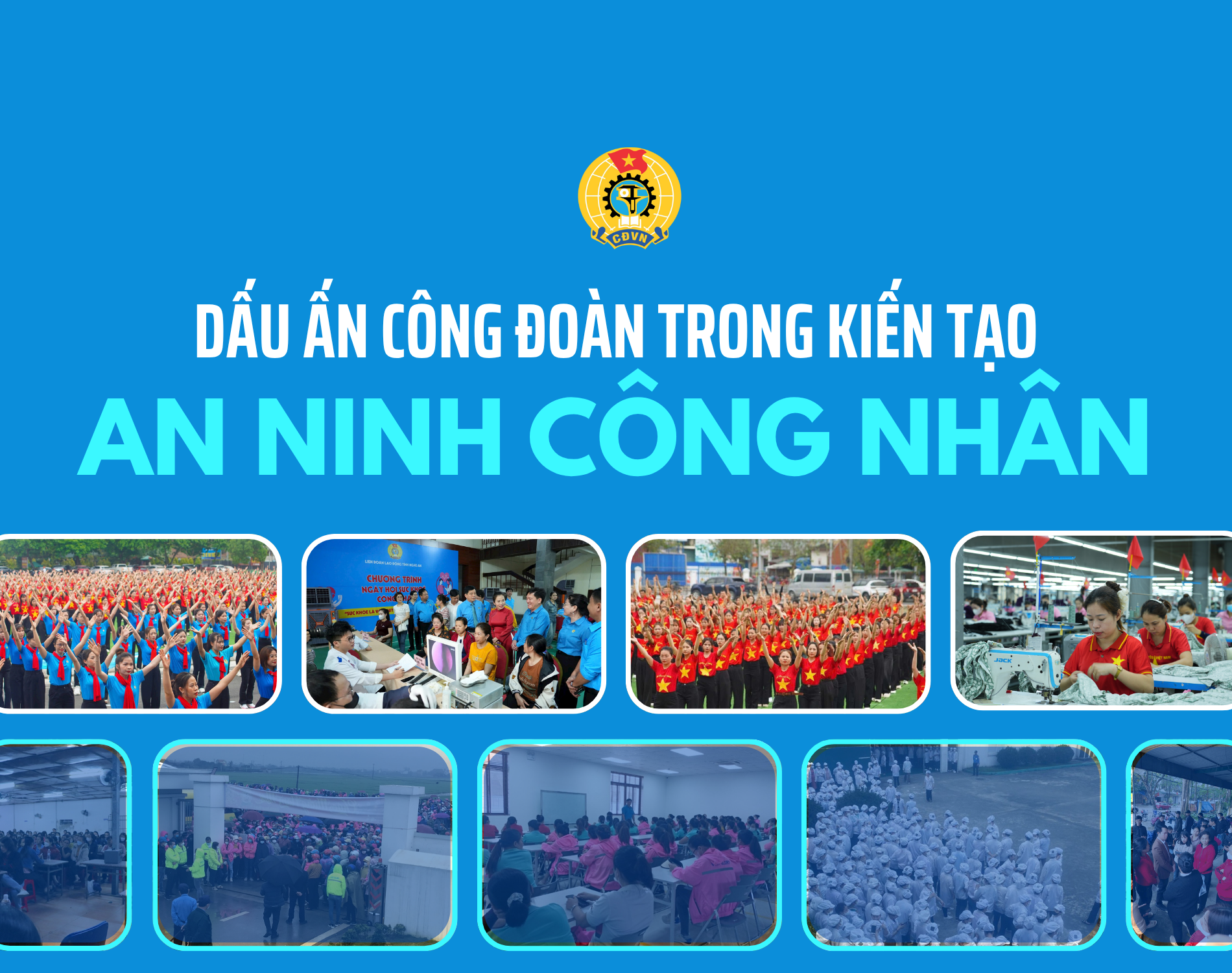
Author: Diep Thanh - Thanh Chung - Phan Trang
Technique: Diep Thanh
.png)
Vietnamese workers, the main labor force and production force of society, are increasingly asserting their role and making great contributions to the country's development in the context of deep integration. In Nghe An, with nearly 400,000 workers in a total of about 16,930 operating enterprises, the role of the working team is becoming especially important. However, along with the increase in scale are difficult "problems" related to worker security, when many legitimate needs of workers have not been resolved promptly. These "loopholes" pose the risk of labor disputes, illegal strikes and unpredictable consequences, directly affecting the stability and sustainable development of the locality as well as the whole society.

The situation of workers' strikes not following legal procedures is a worrying reality, tending to be complicated in Nghe An in particular and the whole country in general. According to the preliminary report on 6 years of implementing Directive No. 37-CT/TW of the Central Party Secretariat, from 2019 to present, Nghe An has recorded 25 strikes with the scale of 50 to 4,000 workers participating in many localities such as Quynh Luu, Dien Chau, Nghi Loc, Nam Dan, Thanh Chuong, Hoang Mai town and Vinh city.
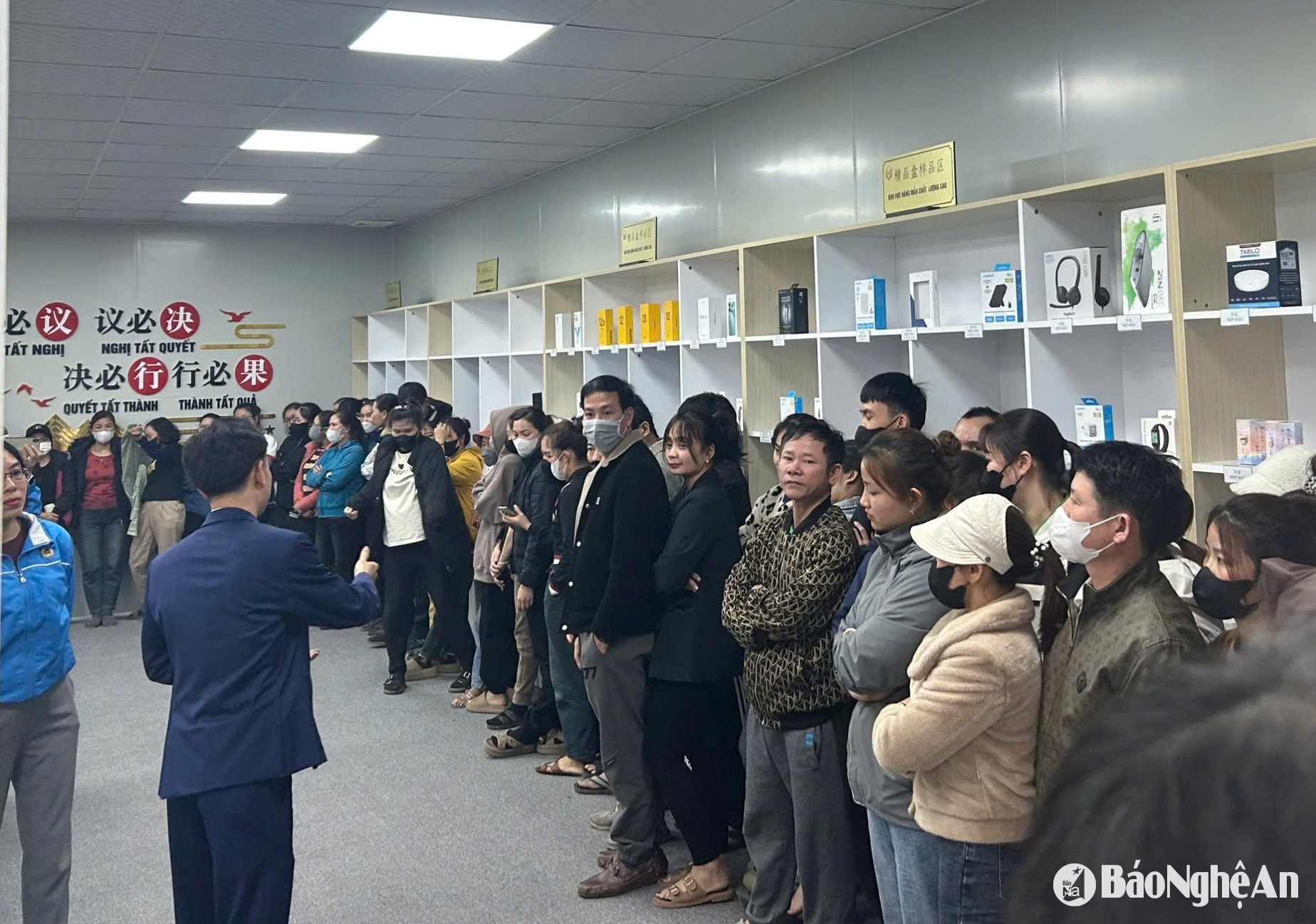
This situation continued into the first months of 2025. Most recently, on March 21, 2025, a collective work stoppage occurred at Zonsen International Packaging Co., Ltd. - Nghe An Branch (Nam Cam Industrial Park), an incident that was considered predictable. The cause stemmed from shortcomings in labor management and a lack of listening from the company's leaders in labor relations. After accepting the workers' request to increase the basic salary, the workers returned to work. However, this was not the first time a work stoppage occurred at this enterprise. Previously, the company had established a grassroots union in 2024, at the request of the workers after the second collective work stoppage.
Previously, a more complicated incident took place at Hoang Thi Loan Textile Joint Stock Company (Halotexco) - Ben Thuy Ward, Vinh City. On the morning of February 17, 2025, many workers gathered to protest after the company announced the termination of labor contracts with 119 out of 387 people from December 13, 2024, citing difficulties in business operations. Believing that the company had not resolved the matter satisfactorily and was slow in paying benefits according to the law, the workers had repeatedly made petitions but had not received a timely response. The conflict reached its peak during the dialogue on February 20, 2025, when the company's leaders affirmed that they did not have enough financial capacity to pay a one-time subsidy but could only pay it gradually each month, and at the same time proposed to accept the workers back to work - an option rejected by the workers' representatives.
The incident clearly reflects the “helplessness” of workers when fighting for their legitimate rights, especially in the context of the grassroots trade union being affiliated with the Central Trade Union - which is far away and difficult to follow the actual developments. This is also not the first time that Hoang Thi Loan Textile Joint Stock Company has experienced a collective work stoppage; similar incidents have been recorded in 2023 and 2024.
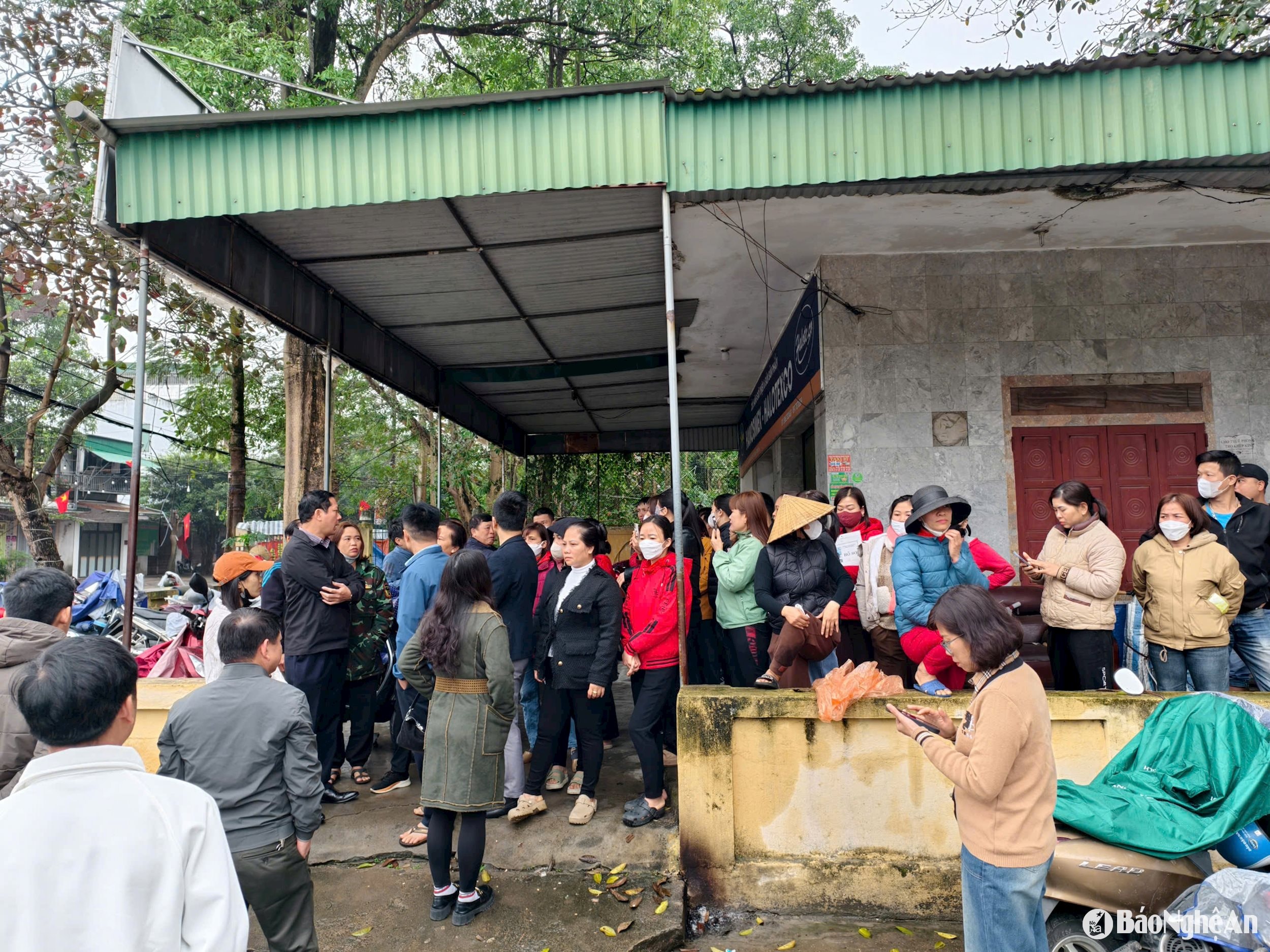
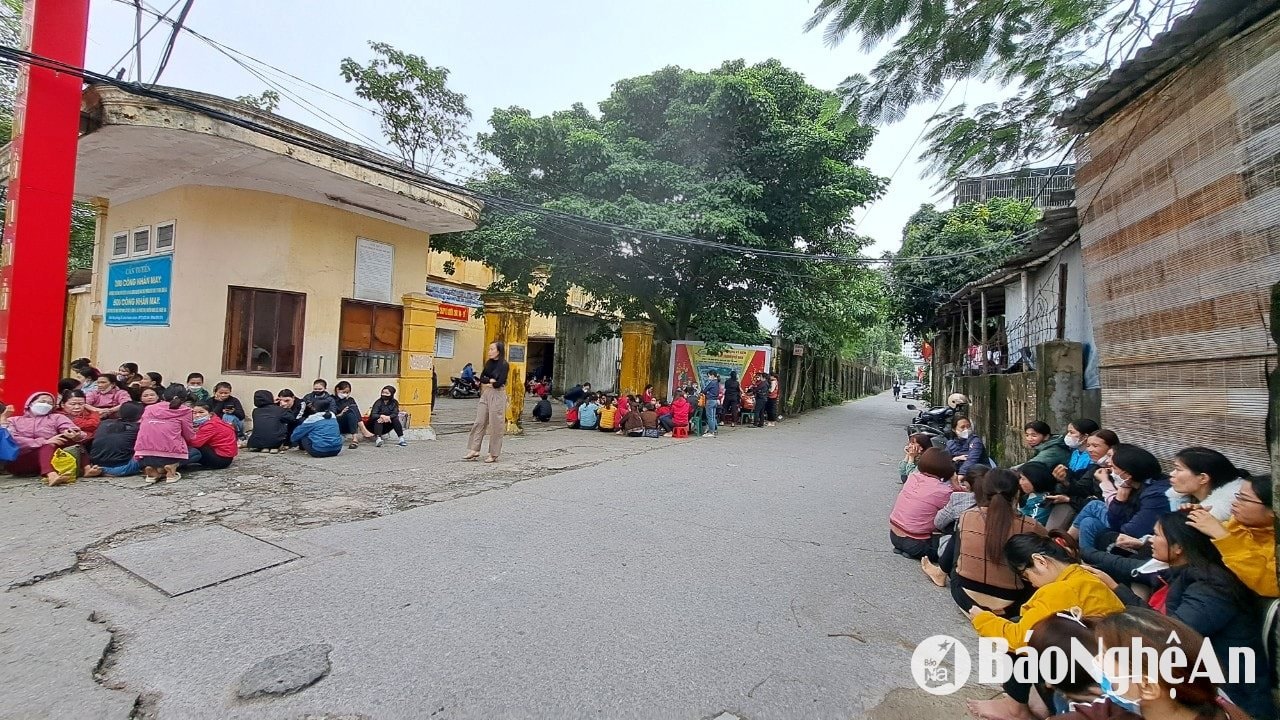
Not only Halotexco, these "bad precedents" are also clearly demonstrated through Viet Glory Company Limited (Dien Chau), where there have been 3 collective work stoppages in just 3 years of operation. The most recent time, on October 2, 2023, nearly 6,000 workers simultaneously stopped working, making 8 groups of petitions on basic salary, product contract and welfare regimes such as toxicity, maternity, diligence fines, and management attitude. Company leaders expressed concern about the damage caused by order disruptions and expressed their wish that workers could express their opinions directly instead of resorting to strikes.

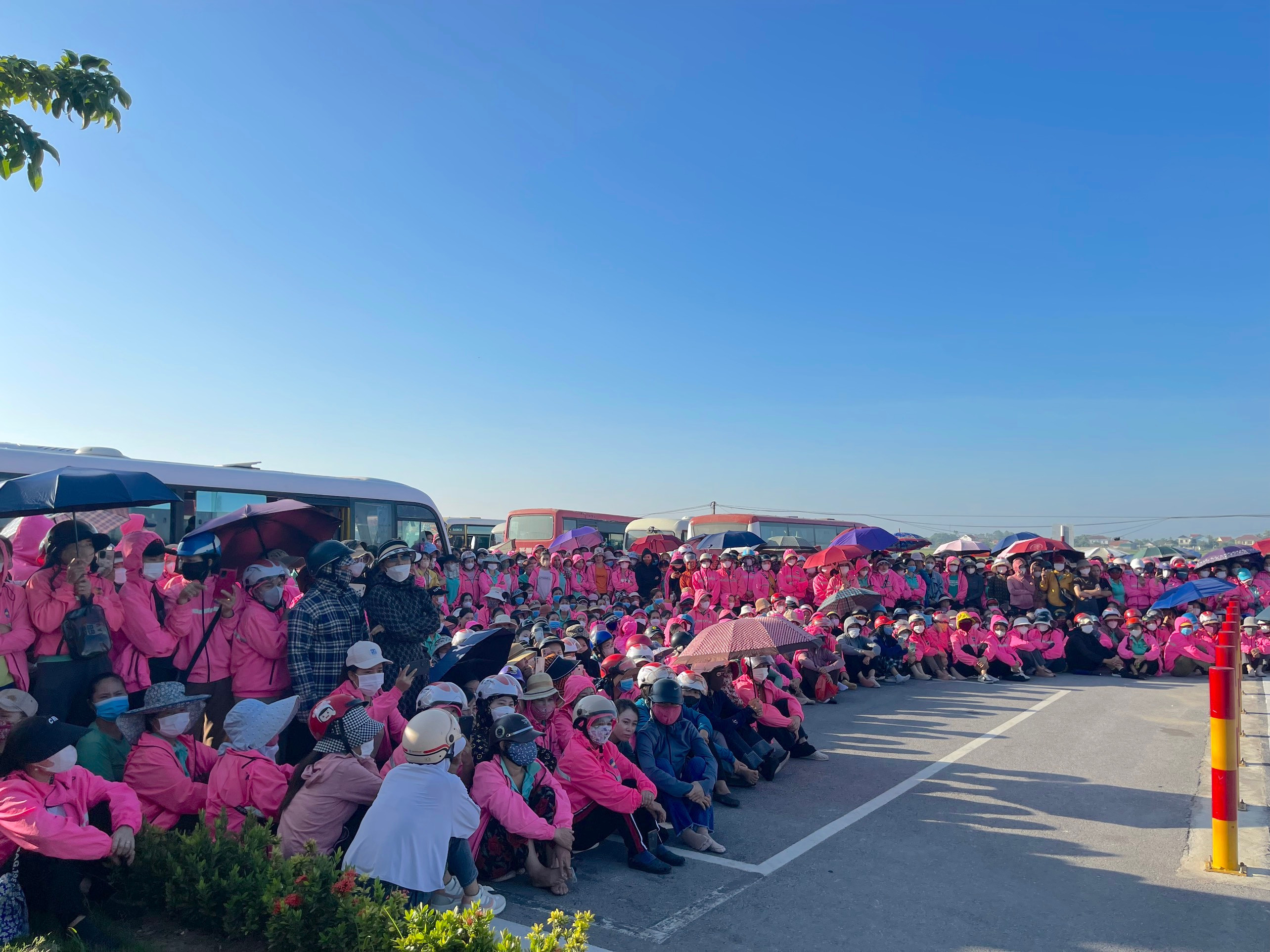
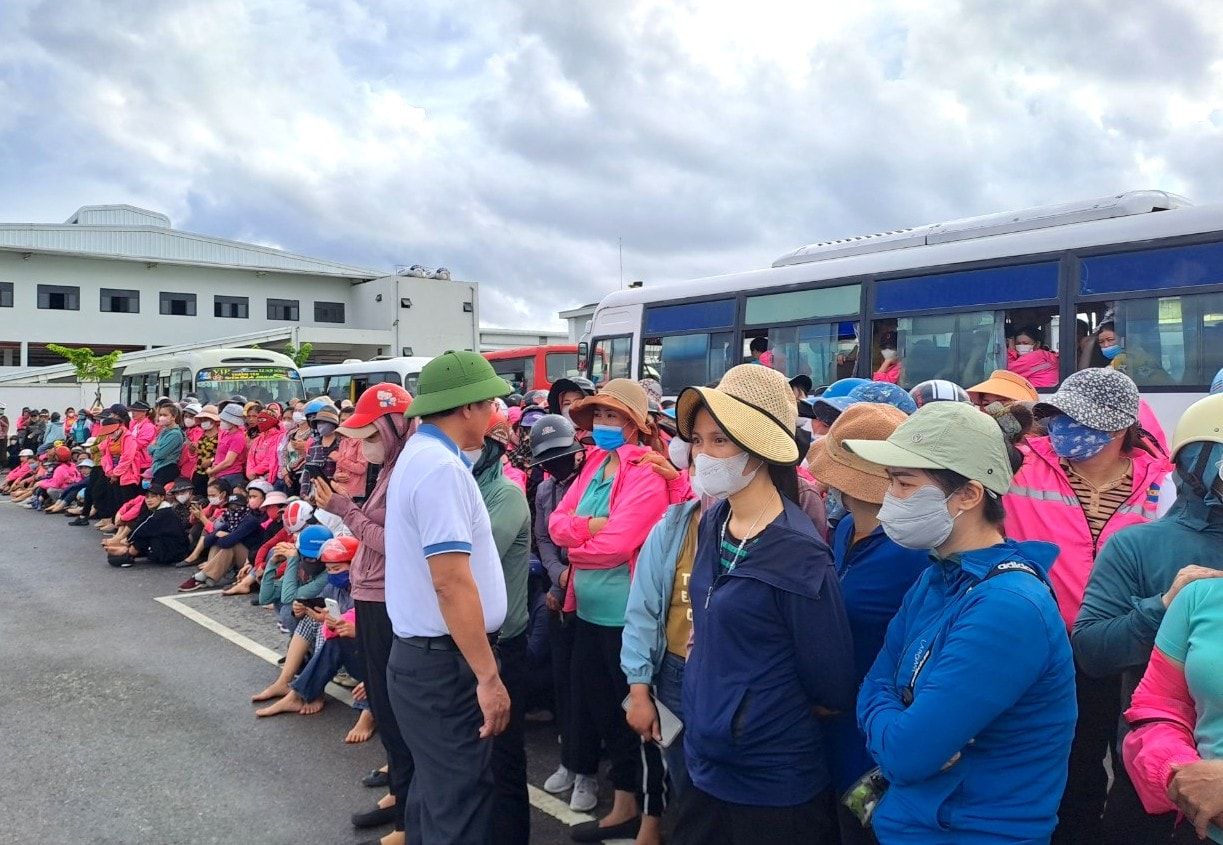
Strikes often take place at sensitive times such as after the Lunar New Year, after payday, or after a new announcement from the company. Responding to post-strike petitions has unintentionally created a "bad precedent", which is easily contagious and creates a mentality of comparing regimes between businesses in the same industry, locality, and even within the same corporation. Typical examples are the simultaneous work stoppages at Em-tech Vietnam Co., Ltd. and Nam Thuan Nghe An Joint Stock Company, Haivina Hong Linh Company (Ha Tinh) in 2022. Statistics show that the number of strikes from 2018 to 2022 nearly doubled compared to the period 2013-2017. Most of the cases did not follow legal procedures, with increasingly complex content, large number of participants, and prolonged resolution time.

Collective work stoppages and illegal strikes cause multi-dimensional damage. For businesses, it disrupts production, affects revenue, reduces reputation and makes it difficult to expand the market. For workers, they lose income, face the risk of losing their jobs and strain labor relations. Mr. Nguyen Chi Cong - Vice Chairman of the Provincial Labor Federation, shared: If workers think "every conflict is a work stoppage, every work stoppage will satisfy all demands", there will be many consequences. At the social level, prolonged strikes can cause instability, affect security and order, reduce budget revenue and weaken the competitiveness of the economy, negatively impacting the local image in the eyes of international investors.

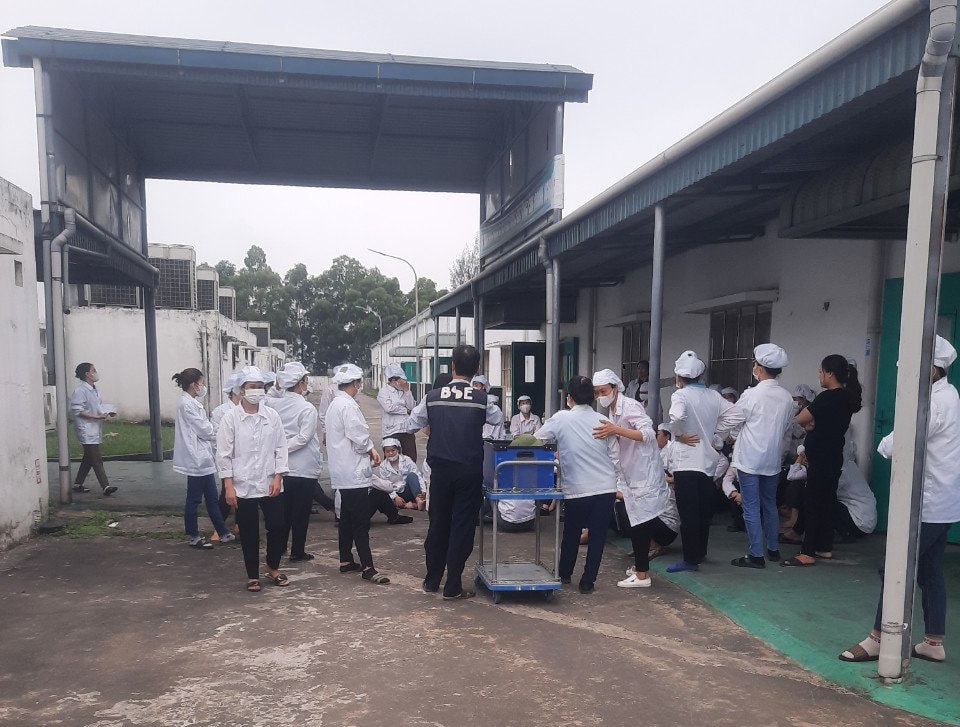
After a survey in the provinces and cities with the most strikes in the country, the Nghe An Labor Federation concluded that the main causes were conflicts in the workplace, due to businesses not complying with labor laws, lack of transparency in salaries, benefits, and lack of democratic dialogue mechanisms. In addition, some strikes also showed signs of workers being lured and incited by reactionary forces, and at the same time, the grassroots trade unions lacked a timely and close grasp of the thoughts and aspirations of workers.
These conflicts can be negotiated and resolved promptly through dialogue. However, the "gap" in dialogue at enterprises has made the situation of labor relations and worker security unstable. Although many enterprises have set up channels for reflection such as suggestion boxes or hotlines, information between workers and enterprises still lacks connection and communication. Many workers' petitions arise because they do not know or understand the regulations. Halotexco leaders have complained that workers do not necessarily have to choose the form of strike, but in reality, they feel "helpless" when demanding legitimate rights.
The problem also lies in the limitations of the grassroots trade union. The Executive Board of the Viet Glory Company Limited Trade Union admitted that it lacked experience and skills to resolve conflicts promptly, even though it had established a trade union. Worker Bui Thi Vinh (Em-tech Vietnam Company Limited) affirmed: "If the company's leaders had promptly listened to the workers' wishes and received workers' opinions from union officials, the strike would have been avoided."
Ms. Tran Thi Nguyet - Vice President of the Southeast Economic Zone Trade Union, pointed out: "Many strikes originate from labor disputes at a factory, but because there is no forum for workers to exchange and make recommendations, they are provoked... then the strike spreads throughout the enterprise, becoming tense and very complicated."
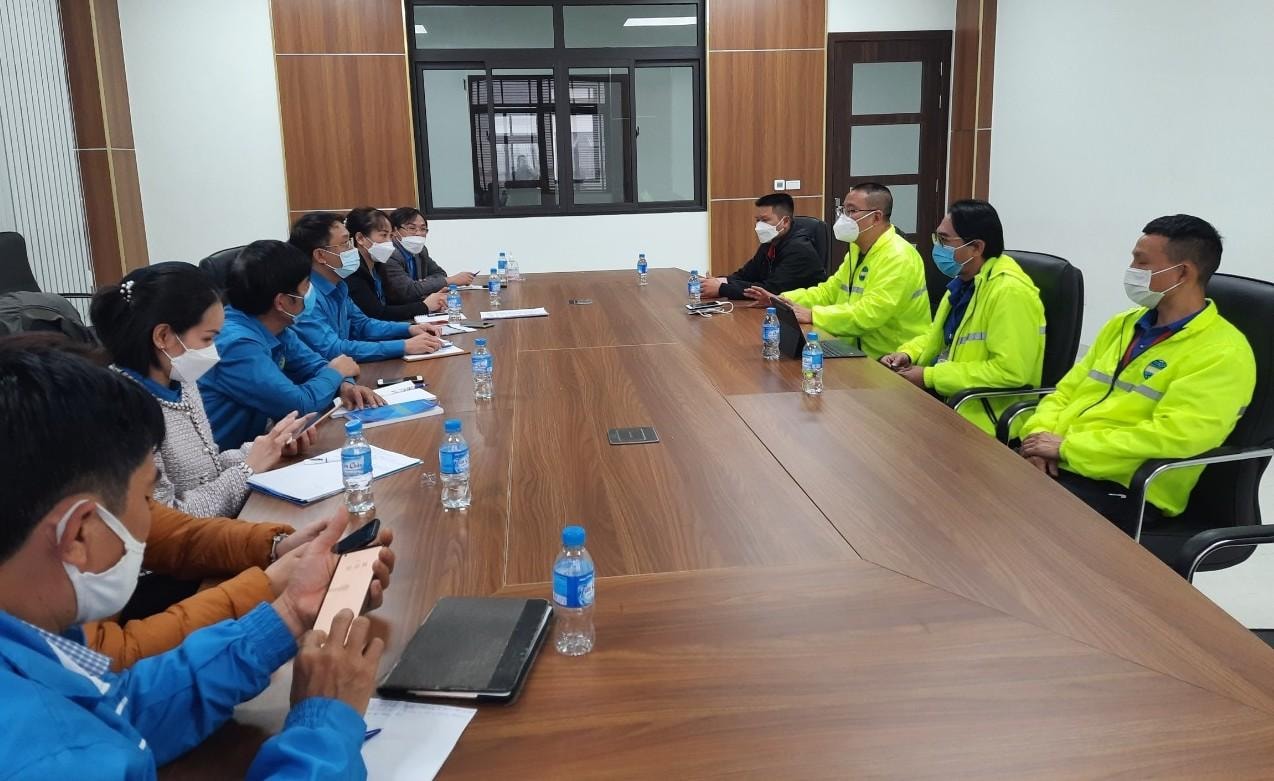
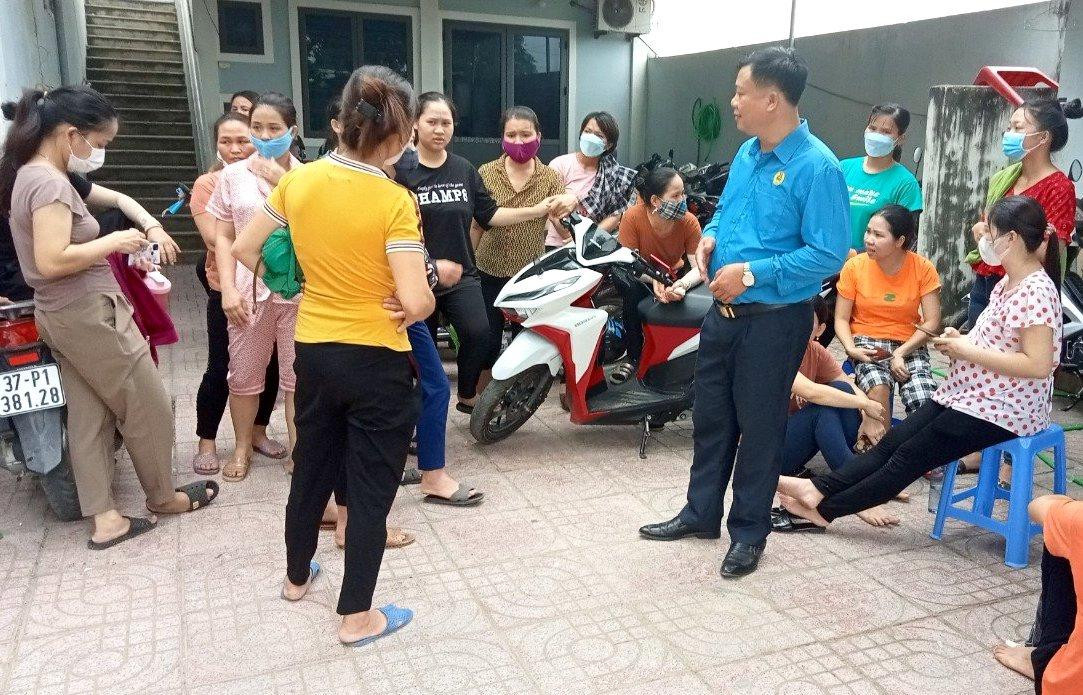
Ms. Nguyet also said that many business owners deliberately misunderstand, lack goodwill, and even avoid dialogue, thinking that this is a waste of time and that workers are demanding. Moreover, grassroots unions are limited in capacity and experience, and lack the courage to propose dialogue. In some businesses, trade unions are not even established or are only "established for the sake of it", and have not been given the right role and position. When conflicts arise, workers are forced to resort to the final solution of conflict and strike, causing great damage to both sides.
